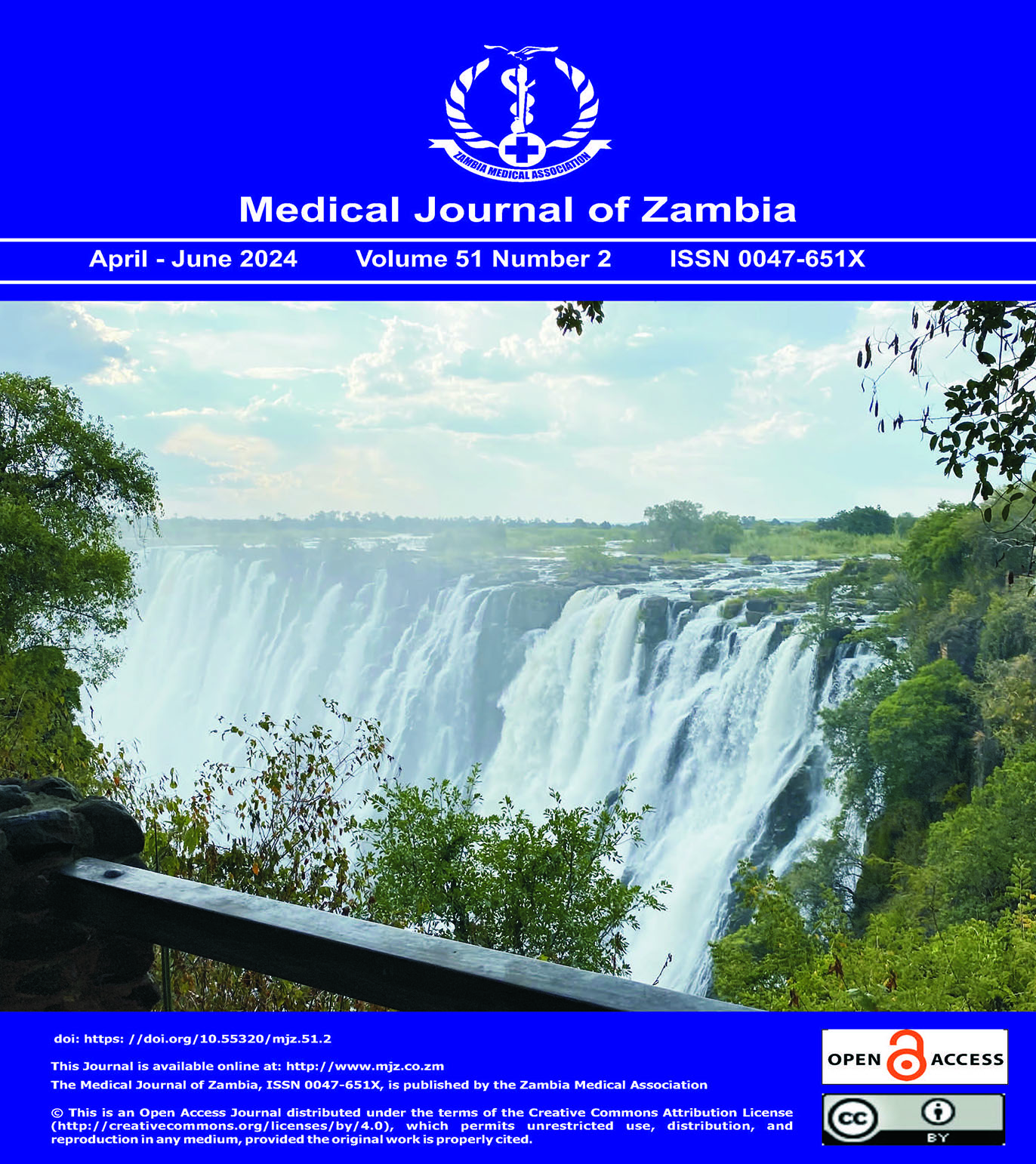Mucopolysaccharidosis Type II in Zambia: A case Report Highlighting the Importance of Multi-Level Collaborations in Rare Diseases Globally
DOI:
https://doi.org/10.55320/mjz.51.2.543Keywords:
Iduronate-2-sulfatase, glycosaminoglycan, X-linked.Abstract
Mucopolysaccharidosis type II (MPS II) is an X-linked lysosomal storage disorder with an insidious onset and a non-reversible progressive course caused by a mutation in a gene that codes for iduronate-2-sulfatase (IDS), a lysosomal enzyme leading to a systemic accumulation of glycosaminoglycan (GAGs). Definitive diagnosis is made by the demonstration of heparan and dermatan sulfatase in urine, enzyme activity assay and molecular analysis of the IDS gene. Management primarily focuses on symptomatic treatment via a multidisciplinary team approach; and where accessible, enzyme replacement therapy. Early diagnosis and opportune commencement of therapy are important to improve quality of life, reduce morbidity and increased expectancy of life. As confirmatory diagnostic testing is limited in many low resource settings, institutional collaborations is key to diagnosing rare diseases. We describe the clinical course, diagnosis and management of an 11-year-old boy from rural Zambia.
Downloads
References
Downloads
Published
Issue
Section
License
Copyright (c) 2024 Medical Journal of Zambia

This work is licensed under a Creative Commons Attribution-NonCommercial 4.0 International License.









